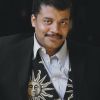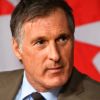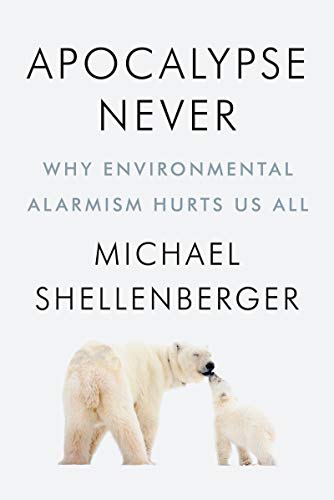14 Environmental Science Books That Separate Experts from Amateurs
Recommended by Alwaleed Talal, Neil Degrasse Tyson, and leading voices for a deeper environmental grasp





What if everything you thought about environmental science could be challenged, reshaped, and renewed? The planet's future hinges on understanding complex, interconnected challenges—climate change, biodiversity loss, and sustainable development. Right now, the stakes have rarely been higher, and the urgency more palpable.
Experts like Alwaleed Talal, chairman of Kingdom Holding Company, who highlights Bill Gates's pragmatic approach in "How to Avoid a Climate Disaster," or Neil Degrasse Tyson, who endorses Bill Nye’s hopeful "Unstoppable," bring diverse but authoritative perspectives that cut through noise. Their insights reveal how these books reflect the frontlines of environmental science, blending data, policy, and human stories.
While these expert-curated books provide proven frameworks, readers seeking content tailored to their specific experience levels, learning goals, or areas of interest might consider creating a personalized Environmental Science book that builds on these insights and addresses your unique path.
Recommended by Maxime Bernier
Leader of the People's Party of Canada
“MUST READ - because the lying mainstream media won’t mention it. Veteran environmentalist apologizes in new book for unfounded climate change alarmism.” (from X)
by Michael Shellenberger··You?
by Michael Shellenberger··You?
Michael Shellenberger challenges the conventional wisdom that environmental alarmism is the most urgent issue facing the planet. Drawing on decades of experience as an environmental activist and energy expert, he uncovers overlooked facts such as declining carbon emissions in developed countries and the reduced deaths from extreme weather events. You’ll gain a nuanced understanding of climate change, the role of nuclear energy, and the socio-political forces driving apocalyptic narratives. The book benefits those tired of polarized debates and looking for a fact-based, pragmatic perspective on environmental science and policy.
Recommended by Peter Egan
UK Actor and Animal Ambassador
“Hi another quickie as they say in the trade. If you haven’t already..get a copy of David Attenborough’s remarkable book ‘A Life on Our Planet’ a vision for the future we must all share. It’s a path we must all follow.” (from X)
by Sir David Attenborough, Jonnie Hughes··You?
by Sir David Attenborough, Jonnie Hughes··You?
Sir David Attenborough's decades as a broadcaster and natural historian culminate in this reflective account that chronicles the dramatic changes in Earth's biodiversity witnessed over his lifetime. You gain a clear understanding of how human activity has reshaped natural landscapes and the urgent need to address climate change, supported by vivid examples from his extensive field experiences. The book also offers a cautiously optimistic vision for restoring the planet, emphasizing practical shifts in energy, agriculture, and conservation. If you seek a grounded perspective on environmental decline paired with a forward-looking approach, this book offers insights that resonate with both concerned citizens and environmental professionals.
by TailoredRead AI·
This tailored book on environmental science offers a richly detailed exploration designed to match your background and specific goals. It examines core principles such as ecosystems, climate dynamics, and human impact, while diving into specialized topics you care about most. The personalized content guides you through complex environmental challenges, revealing interconnections between natural systems and societal responses. By focusing on your interests, this book makes it easier to grasp diverse concepts, from biodiversity conservation to sustainable resource management. Ultimately, it provides a clear, engaging pathway through the multifaceted world of environmental science, helping you develop deeper expertise with content crafted just for you.
Recommended by Chanda Prescodweinstein
Professor of Physics and historian of science
“So excited for this amazing new book, coming soon!! Preorder today!!” (from X)
by Jessica Hernandez Ph.D.··You?
by Jessica Hernandez Ph.D.··You?
Jessica Hernandez, an Indigenous environmental scientist and community advocate, challenges the prevailing ideas of conservation by centering Indigenous science and knowledge systems in this book. You’ll gain insights into how Western environmental policies often exclude Indigenous perspectives, despite their critical role in land stewardship and climate resilience. Hernandez draws on case studies from Latin America and the Pacific Northwest, including her family's own struggles and urban Indigenous restoration efforts in Seattle, to reveal alternatives that emphasize healing and harmony with the Earth. This book benefits anyone looking to expand their understanding of environmental science beyond conventional models, especially those interested in Indigenous approaches to sustainability and ecological justice.
Recommended by Andrew Weaver
Scientist, former BC Green Party leader, University of Victoria Professor
“An informative, succinct, and fascinating read ― Steven Earle offers a unique and detailed account of Earth's climate history. His innate story-telling ability, coupled with his remarkable talent for making complex scientific information accessible, makes this page-turner a must-read for anyone seeking to understand the Earth's climate system.” (from Amazon)
by Steven Earle··You?
While teaching Earth Science for nearly 40 years, Steven Earle observed widespread confusion about climate change, which motivated this book. You’ll explore how natural forces like sun evolution, plate tectonics, and ocean currents have shaped Earth's climate over billions of years, contrasted with the unprecedented impact of human activities. The book breaks down complex processes such as orbital variations and volcanic effects, helping you understand why recent warming is uniquely dangerous. Chapters also tackle climate myths and discuss how events like the COVID pandemic relate to the climate crisis. If you want a clear grasp of climate science fundamentals and how to engage critically with climate debates, this book is for you.
Recommended by Luis Von Ahn
CEO of Duolingo, MacArthur Fellow, Carnegie Mellon professor
“I started reading @BillGates’s new book on climate change. What an amazing individual.” (from X)
by Bill Gates··You?
What happens when a tech innovator turns his focus to climate change? Bill Gates draws on his decades of experience driving technological breakthroughs and philanthropic leadership to map out a detailed approach for reaching net-zero emissions. You’ll encounter clear explanations of where current technologies fall short and where fresh innovations are essential, including chapters dedicated to energy, manufacturing, and policy shifts. This book suits those wanting a grounded understanding of both the scientific and economic challenges, as well as the specific solutions being pursued today. If you're looking for a straightforward, data-informed guide to what it takes to address climate change, this book delivers that perspective without oversimplifying the complexities.
by TailoredRead AI·
This personalized book explores a focused 30-day plan designed to accelerate your environmental contributions with clarity and purpose. It covers key climate action areas, examining practical steps tailored to your background and specific goals, so you gain targeted knowledge that aligns with your interests. The book reveals how individual actions connect with broader climate science and sustainability practices, offering a pathway through complex topics without overwhelming detail. By blending expert environmental insights with a tailored approach, this book ensures you engage with content that matches your experience level and desired impact. It creates a unique learning journey focused on actionable environmental engagement, making your efforts more effective and meaningful.
Recommended by David Roberts
Energy politics blogger, climate analyst
“There’s been no real way for ordinary people to get an understanding of what they can do and what impact it can have. There remains no single, comprehensive, reliable compendium of carbon-reduction solutions across sectors. At least until now. . . . The public is hungry for this kind of practical wisdom.” (from Amazon)
Unlike most environmental science books that focus on problems, Paul Hawken’s Drawdown presents a meticulously researched set of 100 concrete solutions to reverse global warming. Drawing on expertise from scientists and policymakers worldwide, the book details practical strategies ranging from clean energy to land use practices that actively reduce atmospheric carbon. You’ll find clear explanations of how each solution works, its climate impact, and economic viability, making it useful for activists, policymakers, and anyone wanting an evidence-based roadmap to climate action. Chapters on educating girls and soil carbon sequestration reveal less obvious but powerful approaches beyond typical energy discussions. This book suits those ready to understand and engage with real-world climate solutions without hype or despair.
Recommended by Biodiversity and Conservation
“A comprehensive review...Planetary Health is highly interdisciplinary, predicated as it is on the basis that human health and the health of the planet are inextricably linked. I would recommend biodiversity and conservation scientists to read this book because it shows how our understanding of the complexities and interaction of the natural world have direct relevance to managing many existing and emerging human diseases….The editors have done an excellent job in drawing together some deep and critical thinkers about planetary health, and so this will be a useful introductory textbook in undergraduate classes in ecology or environmental sciences as well as the health sciences. I would also like to see Planetary Health used as a primer for those from industry or policy involved in the challenges of how we protect our planet to ensure that it meets the health aspirations of future generations.” (from Amazon)
by Samuel Myers, Howard Frumkin··You?
by Samuel Myers, Howard Frumkin··You?
Drawing from their extensive backgrounds in public and environmental health, Samuel Myers and Howard Frumkin explore how Earth's natural systems—air, water, biodiversity, and climate—directly influence human health. You’ll learn about the diverse health challenges arising from environmental degradation, such as infectious diseases, nutrition deficiencies, and mental health impacts. The book offers strategies like clean energy investment and urban design improvements to mitigate these risks. It’s especially suited for public health professionals, environmental scientists, and policy makers seeking to grasp the interconnectedness of planetary and human health.
Recommended by Chris Hayes
Host of MSNBC's All In with Chris Hayes
“For people who want to learn more about climate change, rising sea levels and what it means for our future, read The Water Will Come.” (from Amazon)
by Jeff Goodell··You?
After analyzing detailed climate data and frontline reports, Jeff Goodell developed a vivid account of how rising sea levels will reshape our world. Drawing from his background as a contributing editor at Rolling Stone and author of titles on energy and climate, he combines scientific evidence with on-the-ground narratives from twelve countries. You’ll gain insight into the mechanics of sea level rise, the limits of human engineering efforts, and the social upheavals to expect as coasts vanish. Chapters detailing cities like Miami and island nations at risk reveal the tangible impacts, making it clear this is not distant speculation but an urgent reality. This book suits anyone serious about understanding the environmental science behind climate change and its profound effects on civilization.
Recommended by Neil Degrasse Tyson
Astrophysicist and science communicator
by Bill Nye, Corey S. Powell··You?
by Bill Nye, Corey S. Powell··You?
When Bill Nye combines his mechanical engineering background with decades as a science communicator, the result is a book that treats environmental challenges as invitations to innovate rather than insurmountable problems. In "Unstoppable," he challenges the notion that energy inefficiency and emissions are inevitable, illustrating through clear examples why transportation wastes energy and how new technologies can reshape that reality. You’ll explore myths about global warming debunked with scientific curiosity and optimism, gaining insights into energy consumption and climate solutions. This book suits anyone eager to understand environmental science through a hopeful, solutions-oriented lens rather than despair.
by David Wallace-Wells··You?
by David Wallace-Wells··You?
David Wallace-Wells, a deputy editor at New York magazine, confronts you with a vivid exploration of the escalating climate crisis in this book. He goes beyond the usual focus on sea-level rise to reveal cascading threats like food shortages, climate-induced conflicts, and economic upheaval, challenging you to grasp the depth of the issue. Through chapters that blend scientific research with vivid narrative, you come to understand how climate change will reshape politics, technology, and capitalism itself. This book suits those ready to face uncomfortable truths and seek a broad, systemic understanding of humanity's environmental crossroads.
by Michael E. Kraft··You?
by Michael E. Kraft··You?
Michael E. Kraft brings his extensive expertise in political science and environmental policy to this updated edition, addressing the evolving challenges of U.S. environmental issues through 2020. You’ll gain a detailed understanding of how policy tools and government actions shape responses to climate change, energy regulation, and natural resource management. The book explores key political decisions, contrasting party approaches to environmental problems and highlighting shifts during recent administrations. If you want to grasp the interplay between science and politics in shaping environmental outcomes, this text offers thorough analysis suited for advanced students and policy enthusiasts.
by Steven Hackett, Sahan T. M. Dissanayake··You?
by Steven Hackett, Sahan T. M. Dissanayake··You?
Steven C. Hackett, a seasoned economics professor, crafted this book to bridge the gap between economic theory and environmental policy. By exploring topics like climate change economics, incentive regulation, and sustainability, you gain a nuanced understanding of how economic principles apply to natural resource management and environmental challenges. For instance, new chapters dissect global climate change policies and their economic impacts, offering concrete frameworks rather than abstract theory. If you seek to grasp how economics shapes sustainable environmental decision-making, this text is a solid choice, though it leans toward academic readers comfortable with economic concepts.
Recommended by James Valentine
Guitarist for band Maroon 5
“@moshekasher This book goes into detail on such scenarios and was great…” (from X)
by Elizabeth Kolbert··You?
by Elizabeth Kolbert··You?
Elizabeth Kolbert, a Pulitzer Prize-winning journalist for The New Yorker, explores humanity’s complex relationship with the environment in this thought-provoking work. She dives into cutting-edge scientific efforts like engineering super corals and carbon capture technologies, illustrating how our attempts to control nature have both caused harm and might be key to survival. You’ll gain insight into the paradox of environmental intervention, from preserving rare species in isolated pools to geoengineering solutions aimed at cooling the planet. This book suits anyone seeking a sober, nuanced understanding of environmental science’s frontiers and the ethical dilemmas involved.
by Bjorn Lomborg··You?
Unlike most environmental science books that emphasize urgent catastrophe, Bjorn Lomborg's work challenges the prevailing narrative by dissecting the economic and social costs of climate change panic. Drawing on his experience leading the Copenhagen Consensus Center and his academic tenure at Stanford's Hoover Institution, Lomborg argues that alarmism has led to costly policies that detract from more effective investments in global welfare, such as education and immunization. You’ll gain a nuanced understanding of climate science projections alongside economic analysis, particularly in chapters that critique policy inefficiencies. This book suits readers willing to reconsider mainstream climate discourse and those interested in balancing environmental action with pragmatic human development.
Get Your Personal Environmental Science Guide ✨
Stop following generic advice. Get targeted strategies without reading 14 books.
Trusted by over 50 environmental science enthusiasts and experts
Conclusion
This collection of 14 Environmental Science books reveals a tapestry of themes—from pragmatic realism in climate discourse to hopeful innovation, and from Indigenous knowledge to the intricate dance of policy and economics. If you're wrestling with how to move from awareness to action, start with "Drawdown" for practical solutions paired with "Environmental Policy and Politics" to understand the governing forces.
For those seeking inspiration grounded in personal witness, "A Life on Our Planet" offers a compelling narrative arc. If your focus is health or urban resilience, "Planetary Health" and "The Water Will Come" provide in-depth analysis. You might also combine "Fresh Banana Leaves" with "False Alarm" to explore contrasting views on environmental justice and economics.
Alternatively, you can create a personalized Environmental Science book to bridge the gap between general principles and your specific situation. These books can help you accelerate your learning journey and deepen your impact in a world demanding fresh knowledge and bold action.
Frequently Asked Questions
I'm overwhelmed by choice – which book should I start with?
Start with "Drawdown" if you're looking for practical actions, or "A Life on Our Planet" for a powerful narrative overview. Both offer accessible entry points into environmental science's biggest challenges and solutions.
Are these books too advanced for someone new to Environmental Science?
Not at all. Many, like "How to Avoid a Climate Disaster" and "Unstoppable," present complex topics in clear, engaging ways suitable for newcomers and seasoned readers alike.
What’s the best order to read these books?
Consider beginning with broad overviews like "A Brief History of the Earth's Climate," then explore specialized topics such as policy with "Environmental Policy and Politics" or Indigenous perspectives in "Fresh Banana Leaves."
Do these books assume prior experience in Environmental Science?
Most provide foundational context, making them approachable. However, some like "Environmental and Natural Resources Economics" may be more suited to readers comfortable with economic concepts.
Are there any books here that contradict each other?
Yes, for example, "Apocalypse Never" and "False Alarm" offer critiques of alarmist climate narratives, contrasting with more urgent tones in "The Uninhabitable Earth." This reflects the field's healthy debate and complexity.
How can I apply these expert insights to my specific environmental interests or career?
While these books offer broad expertise, you can create a personalized Environmental Science book tailored to your background, skill level, and goals, blending expert knowledge with your unique needs.
📚 Love this book list?
Help fellow book lovers discover great books, share this curated list with others!
Related Articles You May Like
Explore more curated book recommendations













